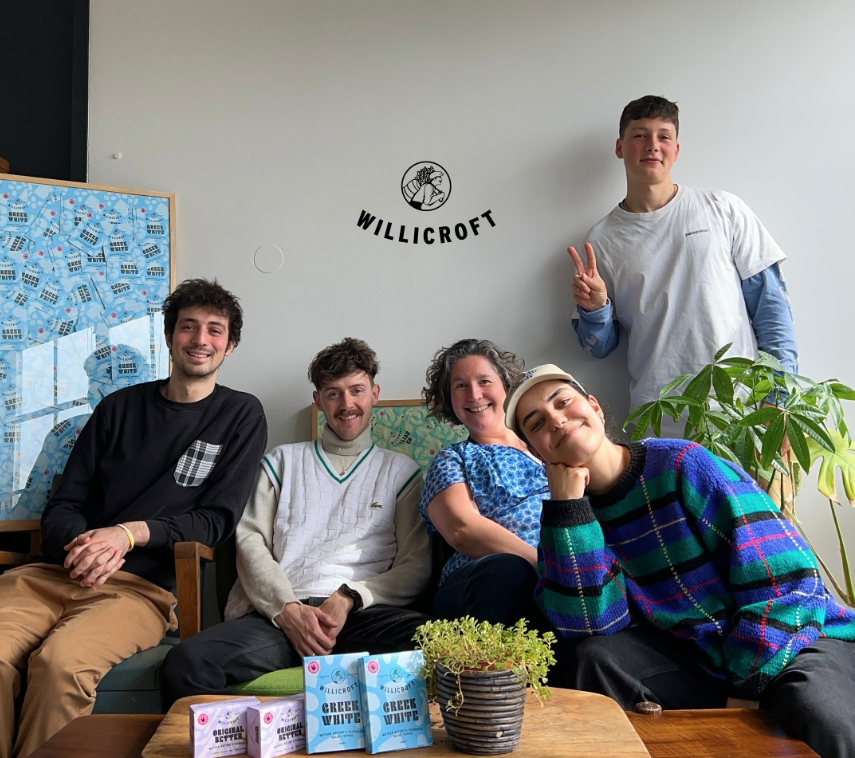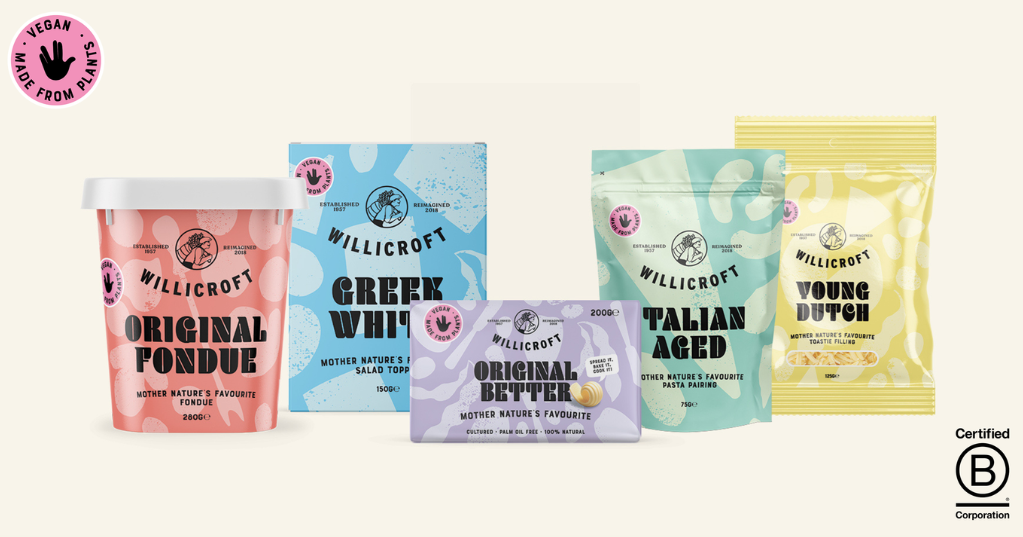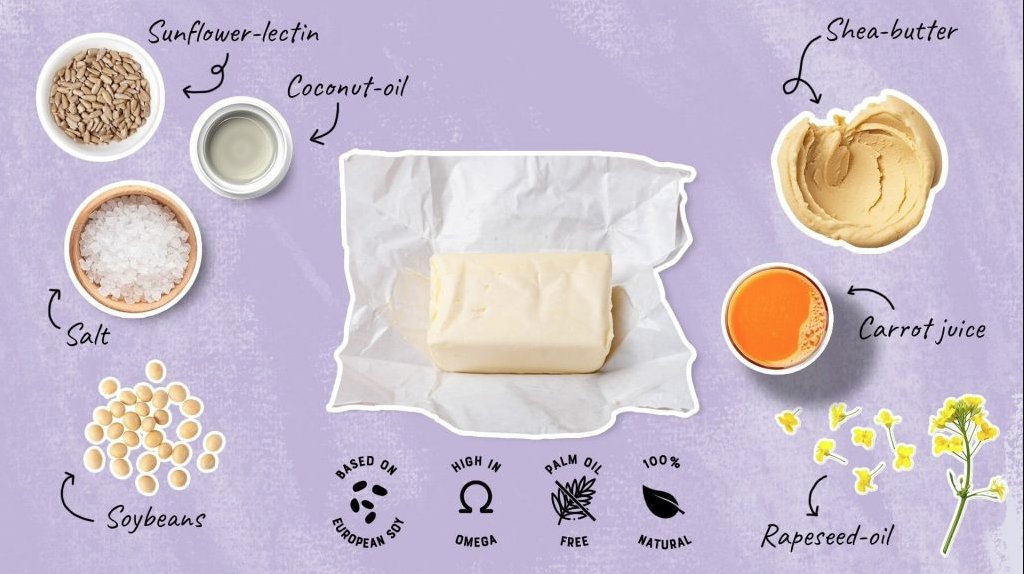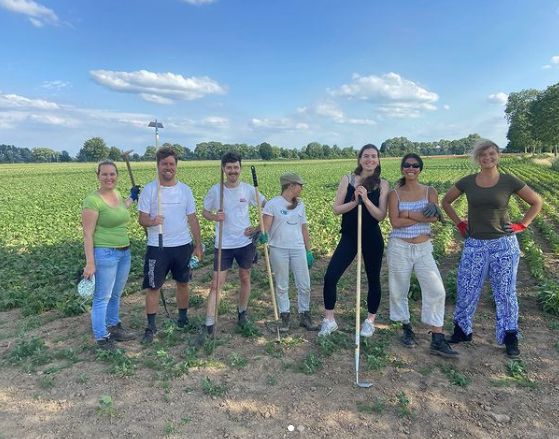
Fundsup spoke with Brad Vanstone, co-founder of Willicroft, who shared about his background and the importance of a higher purpose in his work. He described how this, coupled with his personal frustration over the lack of good cheese alternatives, led to the idea for the company, culminating in the launch of their fermented plant-based butter, ‘Original Better’ (a play on ‘Original Butter’, of course).
A Dutch version of this article can be read on the website of our partner: Emerce.
What were you doing before you founded Willicroft?
“I’ve always been very entrepreneurial. I started my first business in school when I was eight years old! Before Willicroft, I built and scaled several businesses in new countries.”
What was missing in previous roles that led you to start something yourself?
“Although I learned a lot in my previous roles, I was missing a higher purpose in my work. I became very aware of the growing climate issues during my time in New York, but felt powerless to make a difference. I just felt that every day I didn’t try to reverse the impact of climate change was a wasted day.”
How did you come up with the idea for Willicroft?
“Like many ideas, it stemmed from personal frustration. I had recently moved to Amsterdam and started eating plant-based. I found changing my diet relatively easy, with one exception, of course – finding good alternatives to cheese!”
What happened after that realization?
“After an initial year of product development with a food scientist, Willicroft was born in its revised form. The name Willicroft comes from my grandparents’ dairy farm in Devon, UK, which they ran for fifty years. We incorporated many traditional practices into the original recipe, so it felt good to carry on my grandparents’ legacy.”
What sets your approach apart from others?
“Our roots in the dairy industry enable us to better understand and empathize with the fate of dairy farmers. That doesn’t mean we don’t believe in change, quite the opposite, but it helps us better understand the origins of our current food system.”

How does that manifest concretely?
“The way we measure success goes much deeper than just the amount of alternative cheese and butter we sell. We tackle some of the biggest challenges of the food system. Our products emit up to twenty-five times fewer emissions, we are the top-scoring B-Corp in the world for plant-based cheese or butter, Mother Nature is our CEO, and we’ve started a project to support farmers in transitioning from dairy to growing our beans.
With the launch of our new fermented plant-based butter, ‘Original Better,’ we’ve also introduced a fermentation process of an entirely new type to our range, marking our first steps into the food technology sector.”

What kind of investment round are you conducting and what kind of investors are you looking for?
“Our ongoing round is a convertible loan. From a mission and vision perspective, we’re looking for investors who strive for a balance between planet, people, and profit. More strategically, it’s beneficial for us if new investors have connections in the B2B sector within our home markets of the Netherlands and Germany. Investors capable of making follow-up investments in our series are also a real bonus. However, these last two points are not conditional on investing.”
What will you use the investments for?
“The primary destination of the funds is to support the retail and hospitality launch of the Original Better (our fermented plant-based butter), obtaining a patent, and increasing the localization rate of our protein and fat ingredients based on regenerative practices. The round will also enable us to break even.”
Regarding that point: how is your business doing?
“We’ve just sold eight tons of our new fermented plant-based butter in our first ten weeks of sales. As an indication of the product’s quality, our first customers were five separate Michelin-starred restaurants, while we sold out within twenty-four hours at our first online retailer, Crisp. It’s also being used by top bakeries like Saint-Jean, Oslo, and Selma’s. That first batch of eight tons is now sold out, and the second one is in production.”
How does that translate financially?
“We’ve secured 1.1 million euros in revenue for 2024: under contract or launched. By the end of 2024, sixty percent of our revenue is expected to be driven by our new fermented plant-based butter.”
What led you to enter the alternative butter market?
“We moved into the alternative butter market partly because of its size compared to alternative cheese and partly because of a few gaps we saw that we thought we could fill. The global market for plant-based cheese currently represents about 2.6 percent of dairy cheese, while margarine (which is mainly plant-based) represents 42 percent of dairy butter sales.”
Yes, because margarine has been around for a long time. What’s new about your ‘butter’?
“Despite its size, margarine lacks the flavour complexity of dairy butter. Through precise fermentation, we’ve replaced butyric acid, the key flavour component of dairy butter. We’ve also achieved the same melting temperature as dairy butter, which is why more than twenty bakeries are using the product. Furthermore, our Original Better emits seven times fewer emissions than dairy butter and has up to fifteen grams less saturated fat.”
Regarding distribution: what does that look like?
“Our main focus is currently on hospitality and B2B sales. Due to the quality of Original Better, we can target top chefs and bakers. Our first proprietary retail launch was, as I mentioned, online with Crisp, which sold out within twenty-four hours. We will also launch in physical stores later in the year.”
Where would you like to see the company in five years?
“We measure our success by the amount of emissions we avoid as a company by comparing our emissions to the equivalence of dairy products. The dairy industry accounts for four percent of global emissions but continues to grow in revenue. In five years, we want to play a leading role in reversing both components by fulfilling our promise to make plant-based products for dairy lovers.”

What advice would you give to entrepreneurs?
“I’m cautious about giving advice – we strongly believe in the mantra of ‘showing instead of telling’ – outline the path and others will follow. However, I’m happy to share some tips on a few things that have worked for us and might apply to others. There are a million reasons not to start when embarking on a new project; even if you don’t have all the answers, it’s worth taking the plunge. In the early stages, we didn’t try to look too far ahead. I looked at what progress meant, just one day at a time, then a week, then a month.
Before we knew it, a goal that seemed unreachable months earlier had been achieved. Finally, we’ve woven our impact goals and measurements into our business from the start. We see so many entrepreneurs focusing on impact once they’ve achieved commercial success. This can work, but corners are often cut, and too much emphasis is placed on financial returns. We believe it’s the responsibility of all businesses to have a positive impact on the planet today, not tomorrow.”
More information about Willicroft for investors can be found here.